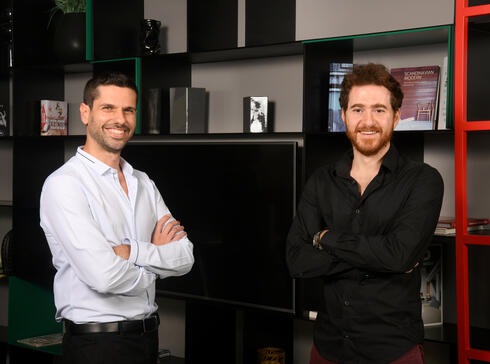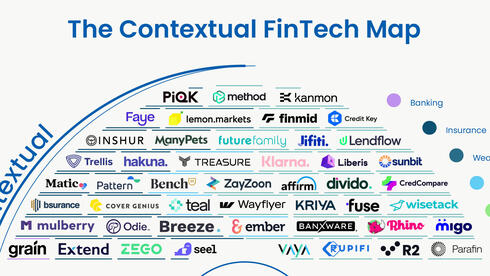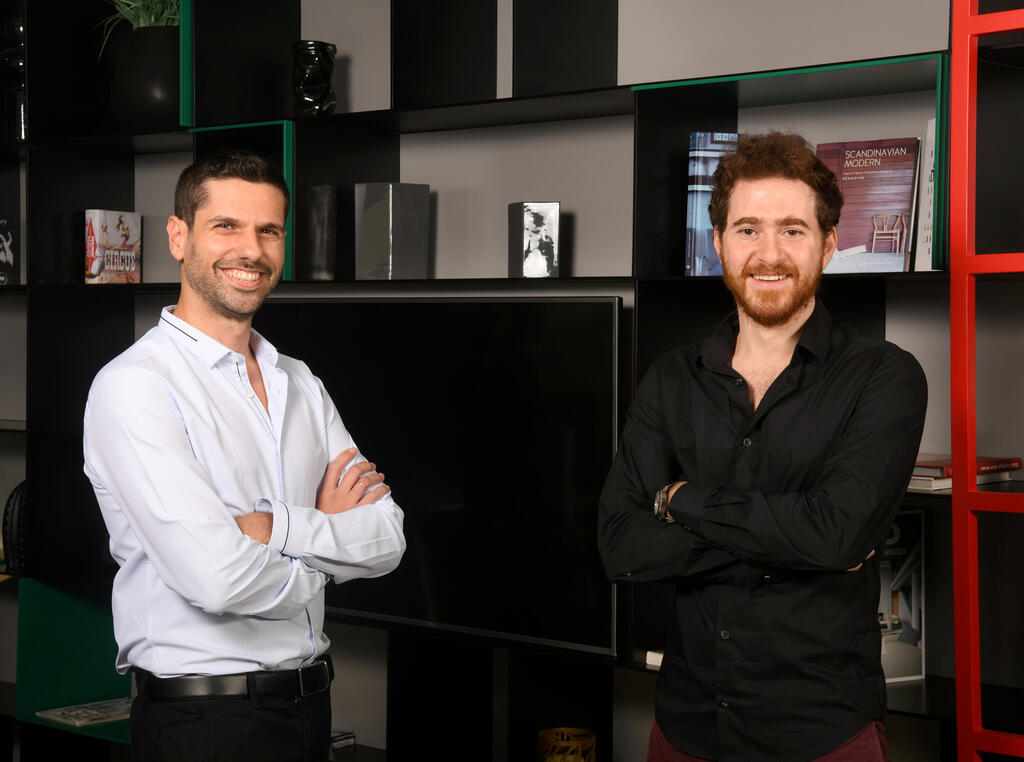
Cyber on fire: Cybersecurity sector is breaking away from high-tech industry
Cyber on fire: Cybersecurity sector is breaking away from high-tech industry
An arms race between the cyber giants, along with the disruption created by AI, is raising company valuations, resulting in improved exits and funding rounds
The expected purchase of the Israeli cyber unicorn Noname Security by Akamai for about half a billion dollars is another sign of the separation of the local cyber industry from Israeli high tech.
While the rest of the high-tech industry struggles to raise capital, the cyber industry seems to have endless possibilities. Although Noname Security is about to be sold for about half of its value in its most recent funding round, another company, Cyera, announced last week it was raising $300 million at a value of $1.4 billion, possibly signaling that the bubble years may be returning to cybersecurity.
Cyera is the first cyber unicorn of 2024, and it seems from the words of Yotam Segev, the company's CEO and one of its founders, that he believes that now is the time for cyber to run forward and not be afraid to raise huge sums or ask for - and receive - high values, which remind many of the era of unicorns. "In the past we thought that a $10 billion cyber company was huge. Today it's just another cyber company," said Segev. It is true that Cyera presented an unusual fundraising round for the current market. However, Segev's words do not necessarily indicate arrogance, but mainly an understanding that cyber is a market in demand.
According to the data of the research company IVC, collected on the occasion of the Cybertech conference, in the first quarter of 2024 there Israeli cyber exits amounted to $985 million, despite the war. The sums of the exits of Israeli cyber companies in 2023 broke a record and exceeded $7.1 billion. This is a 65% increase compared to $2.45 billion in 2022, and a 22.5% increase compared to $5.5 billion in 2021.
Shay Michel, a partner in Merlin Ventures, which invests in early-stage cyber companies, believes that we will see many more exits in the coming year and that those who will be able to recruit easily are mainly repeat entrepreneurs. "Looking ahead to 2024, repeat entrepreneurs will be the ones able to raise initial capital at a high value. It is relatively easy for them to reach customers and recruit employees. I believe that in 2024 we will also see a continuation of the trend of cyber exits, whether at a low value among those companies that were established a few years ago and are now in difficulties, or at higher valuations among those who are in an excellent business condition."
The arms race to acquire companies
As far as the cyber companies are concerned, we are currently in the "platform period". A cyber company that wants to maintain its position as a large company, whether it is Palo Alto Networks, CrowdStrike, Zscaler, or whether they are smaller and newer players, such as the Israeli company Wiz, cannot be satisfied with their internal innovation and are constantly looking for the next technology. The local arms race was started by the largest cyber company in the industry today, Palo Alto Networks, which was founded by the Israeli entrepreneur Nir Zuk and is currently traded at a value of $90 billion. In the presentation issued by the company after the publication of its annual report, it marked new goals for the next year, and marked the areas in which it wants to "expand", that is, acquire companies. Palo Alto is also considering offering some of its technologies for free. Not long after the statements, Palo Alto acquired two Israeli companies for about $850 million. The first was Talon Cyber Security for about $600 million and the second was Dig Security for about $250 million.
These purchases ignited a buying spree by competitors in Silicon Valley. CrowdStrike, which is currently considered the second largest cyber company and which until now was not known as a buyer, hastened to make additional purchases in Israel for significant amounts, for example Flow Security about a month ago for about $200 million and in September of last year Bionic for $350 million. Zscaler, the significantly smaller of the group, purchased Avalor for approximately $350 million.
This arms race has somewhat set the local cyber industry back years. The companies in the industry have claimed for years that they do not want to be sold at an early stage, but to build significant companies for the long term. However, most of the companies that were sold were purchased even before they tried to reach significant sales, they had not yet established big marketing teams and most of their revenues were in very preliminary stages. In most cases, the returns to entrepreneurs and investors were very high due to the fact that they were established only two years ago at most, and did not have enough time to be diluted from their holdings.
Another accelerator - generative artificial intelligence
In March of this year, the Israeli company Gem Security was purchased by the Israeli cyber unicorn Wiz for approximately $350 million, with a significant part of the purchase amount being retention fees for the company's employees and its founders. When the Gem entrepreneurs were asked why they agreed to be acquired at such an early stage, they did not shy away from the fact that the financial consideration and the money they pocked had a significant weight in the decision. The company, which was established only two years ago, raised only $30 million and was sold for an amount that left each of its co-founders with many tens of millions of dollars in their pockets and still promises a future for the company they founded and the technology they developed.
This fact is important to many entrepreneurs, who understand that the only way their technology will become significant is if they join a large firm, which can accelerate or launch significant sales of their technology. This is also the case with Talon Cyber Security, which developed a secure browser and was acquired by Palo Alto Networks, which is planning to offer it to all its customers, possibly even for free at this point.
If there is another factor that can shake up the cyber industry this year and accelerate the arms race, it is the introduction of artificial intelligence, especially generative AI. The capabilities offered by this industry, which is currently in its infancy but is quickly being adopted by almost all companies, indicates that in addition to being a disruptive technology, it also creates new cyber threats that require renewed preparation. A large number of cyber companies are currently springing up in Israel and around the world with the sole purpose to provide protection for these new systems.














